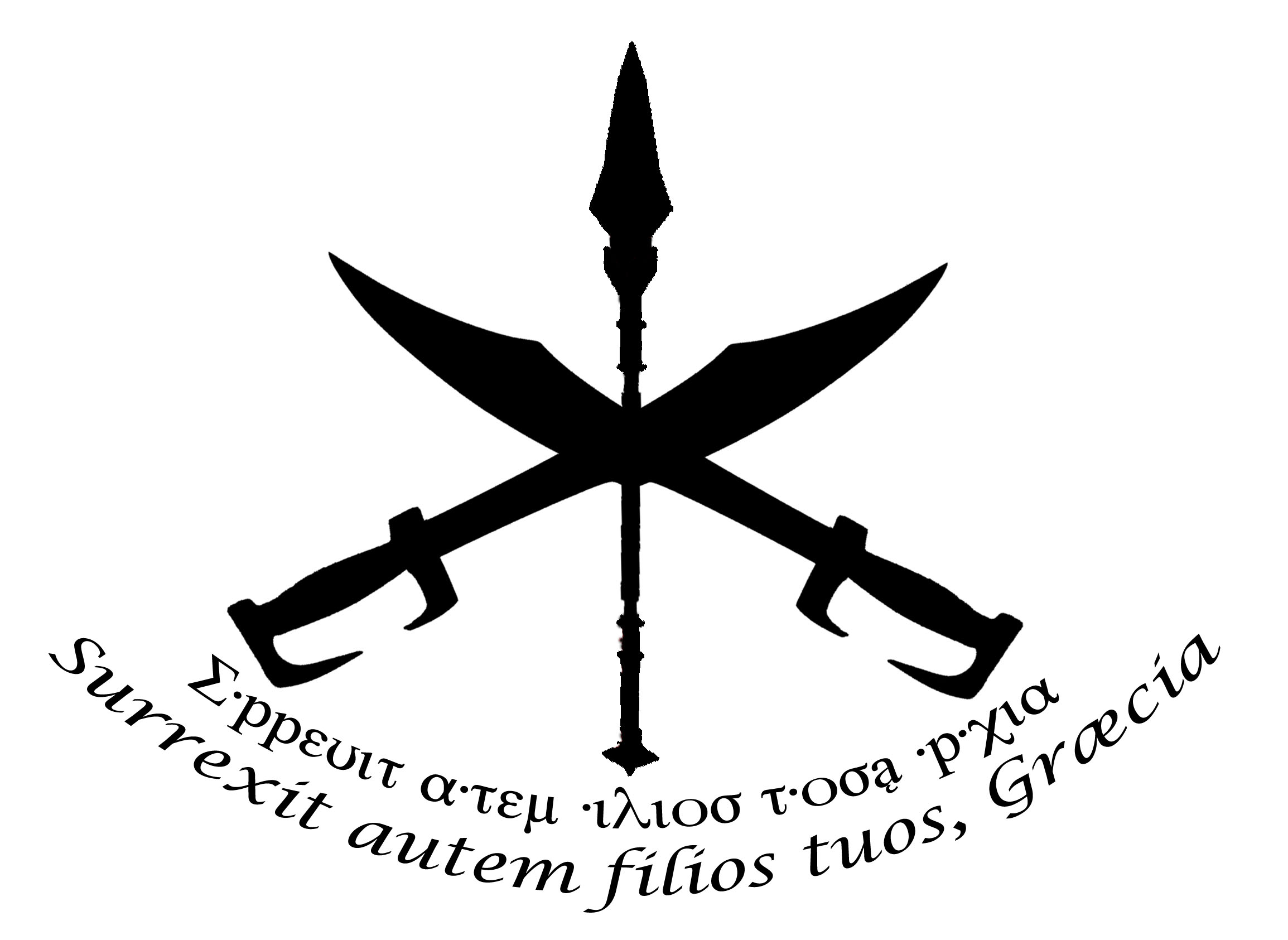ShopDreamUp AI ArtDreamUp
Deviation Actions
Suggested Deviants
Suggested Collections
You Might Like…
Featured in Groups
Description
Google translate at its finest...
As I have more recently learned, it was completely wrong. It's been almost a decade now, and I actually study Latin in university now. The correct translation of our old motto would actually be something like "Gloria ad filios Graeciae," transliterated into Greek characters it would be something like "γλορια αδ φιλιος Γραεκιαε." (and I don't even think I need to include the "ad" in this translation, but I think it looks nice).
The moderately correct Attic Greek translation, (because I study that now too) would be something like "δόξα εἰς τους υἱους Ἑλλᾶδα." The motto in English was "Glory to the sons of Greece," as cringy as that was...
As I have more recently learned, it was completely wrong. It's been almost a decade now, and I actually study Latin in university now. The correct translation of our old motto would actually be something like "Gloria ad filios Graeciae," transliterated into Greek characters it would be something like "γλορια αδ φιλιος Γραεκιαε." (and I don't even think I need to include the "ad" in this translation, but I think it looks nice).
The moderately correct Attic Greek translation, (because I study that now too) would be something like "δόξα εἰς τους υἱους Ἑλλᾶδα." The motto in English was "Glory to the sons of Greece," as cringy as that was...
Image size
2309x1685px 172.07 KB
Comments1
Join the community to add your comment. Already a deviant? Log In
The original translation literally translates as something like "Arise but your sons, Greece." I think the original motto was probably something like "rise sons of Greece" or something like that, different from what I remembered. In that case the more correct translation would be something like "surgite filios Graeciae."
The first problem is that the first word "surrexit" is the third person singular perfect indicative active of "surgo, -ere, surrexi, surrectum," meaning "rise, arise, or get up." "Surrexit" on its own translates as something like "he/she/it has been risen," or "he/she/it has arisen." The English version of the motto is forming a command so the imperative must be used in Latin, making the correct conjugation "surgite," which is the second person plural present active imperative, since the sentiment applies to more than one person.
The second problem is the word "autem." This is a postpositive word meaning "but, or however," which makes no sense for the translation at all. In addition since it's postpositive, it can't appear in the first clause of a sentence, meaning it's completely out of place in this one. It can just be completely removed.
The third problem is "tuos," which is the masculine plural accusative of the adjective "tuus" meaning something like the possessive "your." This is another word which makes zero sense in this sentence, since nothing is being possessed. It can be removed.
The fourth problem is "Graecia." Now this word could be one of two things, the singular nominative, or the singular vocative, since there is a comma separating it from the rest of the sentence, I'm going on the assumption that it's vocative. Vocative is used in a case where a noun is being addressed, and in all cases can be removed from a Latin sentence without greatly changing the meaning. To my understanding, it basically works to specify a person being addressed when that's not clear. Thing is, in the English translation, it's not "sons, Greece" it's "sons OF Greece," meaning the ending of Graecia must be genitive. This makes it "Graeciae," since the word for Greece does not have a plural form.
"Filios," is the plural accusative of the word "Filius, -ii, m," and is entirely correct for this sentence, since the "sons" are the ones being addressed by the imperative verb.
Thus making the more correct translation "surgite filios Graeciae."
The first problem is that the first word "surrexit" is the third person singular perfect indicative active of "surgo, -ere, surrexi, surrectum," meaning "rise, arise, or get up." "Surrexit" on its own translates as something like "he/she/it has been risen," or "he/she/it has arisen." The English version of the motto is forming a command so the imperative must be used in Latin, making the correct conjugation "surgite," which is the second person plural present active imperative, since the sentiment applies to more than one person.
The second problem is the word "autem." This is a postpositive word meaning "but, or however," which makes no sense for the translation at all. In addition since it's postpositive, it can't appear in the first clause of a sentence, meaning it's completely out of place in this one. It can just be completely removed.
The third problem is "tuos," which is the masculine plural accusative of the adjective "tuus" meaning something like the possessive "your." This is another word which makes zero sense in this sentence, since nothing is being possessed. It can be removed.
The fourth problem is "Graecia." Now this word could be one of two things, the singular nominative, or the singular vocative, since there is a comma separating it from the rest of the sentence, I'm going on the assumption that it's vocative. Vocative is used in a case where a noun is being addressed, and in all cases can be removed from a Latin sentence without greatly changing the meaning. To my understanding, it basically works to specify a person being addressed when that's not clear. Thing is, in the English translation, it's not "sons, Greece" it's "sons OF Greece," meaning the ending of Graecia must be genitive. This makes it "Graeciae," since the word for Greece does not have a plural form.
"Filios," is the plural accusative of the word "Filius, -ii, m," and is entirely correct for this sentence, since the "sons" are the ones being addressed by the imperative verb.
Thus making the more correct translation "surgite filios Graeciae."




































